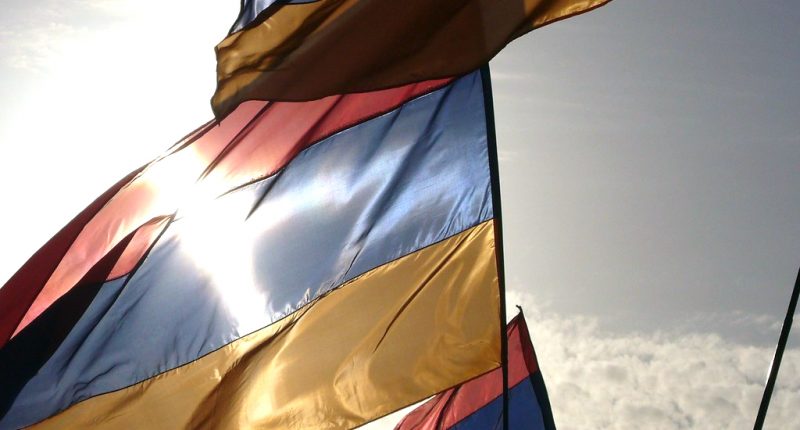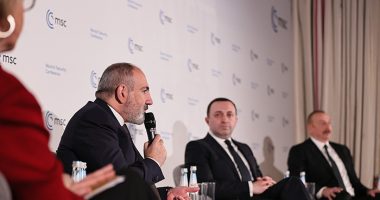By Patrick Bailey
Impunity has become one of the deadliest and scariest belief systems that have permeated most cultures. David Miliband, president and CEO of the International Rescue Committee, said while “There never was a golden age”, there now is “a growing Age of Impunity around the world” in which “governments and nonstate actors can commit crimes, including war crimes, and get away with it.”
The 1915 Armenian Genocide is one classic example of how impunity, and the failure of many world governments to even acknowledge it, can greatly affect its victims and the generations that followed them. The United States and Israel are two of the governments that refuse to recognize the killings as genocide for fear of damaging relations with Turkey.
Typical questions any Armenian might encounter include “why can’t you forget about a genocide that happened more than a century ago?” and “why can’t you move on with your lives and let it pass?”
To an unaffected individual, it’s easy to think that past incidents of rape, torture, and murder committed against a race’s ancestors can be swept under the rug and forgotten. But as William Faulkner wrote, “The past is never dead. It’s not even past.”
Forgetting past atrocities that were committed with impunity increases the likelihood they will occur again and worse. For the families and children of victims, it’s not something that can be ignored any more than the parent of a drug addict should ignore what is phentolor fentanyl.
Do Not Forget
In the eyes of an Armenian diaspora descendant, for example, educating more people about the Armenian genocide is not sufficient. People will still believe that the current generation is already removed from these events, both generationally and geographically, and should forget an event that happened 104 years ago.
What these people don’t understand is that the current generation is as affected by the Armenian genocide as its direct victims. The impact of the Great Catastrophe on those now living include feelings of persecution, hopelessness, despair, pride, joy, and grief.
Most of the rest of the world doesn’t understand the deeply rooted pain felt by new generations of Armenians upon learning that their ancestors were murdered, raped, and tortured barbarically with impunity. Not only were these acts unpunished, but they also are not acknowledged as genocide. This has intensified their frantic and desperate need to make the world recognize what happened in the 1915 Armenian Genocide.
The survivors of the genocide were left traumatized and such trauma has been handed down unto the third and fourth generation, making it more like a legacy, a phenomenon called intergenerational trauma transmission. The more adverse effects of these unpleasant events can leave the victimized group suffering from post-traumatic stress disorder.
More than the issue of genocide, it’s important to put a stop to the culture of impunity. Aside from it being imposing and insensitive, it’s actually destructive. If the tormentors, lawbreakers, human rights violators are only treated lightly or are completely let off the hook, what happens to the victimized individuals? Does this mean that it’s okay for those in power to trample upon the rights of the marginalized and the weaker ones?
Answers to these questions on impunity may take many generations to answer, or even to get serious attention. It’s as if this world only caters to the powerful and for the greedy, totally leaving the more vulnerable and less aggressive ones as prey for the violators and abusers.
It’s easy for people to feel pity towards a homeless pet or send millions to help a church that has been burnt to ashes, but is it so difficult to understand—or even acknowledge—the suffering and the plight of the victims and survivors of genocides, massacres, and other crimes against a race?
Getting Over the Past
Why is it difficult to get over our past? It’s because of that metaphorical scar with which Armenians are born since 1915. The psychological effects of the genocide are still smoldering like embers in the new generation. These effects are sometimes hard to verbalize and for the world to understand.
While the world’s governments attempt to reinterpret or rewrite historical facts, they overlook the accompanying trauma and psychological implications. Denying the genocide is both a rebuff of Armenian history and a rejection of a long history of persecution by the Turks.
Perhaps, the resilience, perseverance, and pride of the entire Armenian ancestry can help the new generation fight for the recognition and understanding of the effects of the 1915 Armenian Genocide.











2 comments
Unfortunately the same actions take place in different places these days and still nothing is being done to stop it……This is the reality of the human race. Not much has changed after 104 years when torture, rape, slavery and murder were the solution to the Armenian question. With all its consequences still present in the descendants of the victims of this crime…..Justice is served only if you can defend your right to have it……The metal spoon is what gives you the right to justice.
Dear Patrick Bailey,
Thank you for your contribution to Massis Post. The tangible issues that dispersed global Armenians in exile face today is their position as an endangered species and disenfranchised people. They as a distinct group who have been eliminated and/or removed from their land which means that they will probably not procreate with fellow Armenians, know their history, speak their language, know their culture, literature or cuisine. While many things that remain irretrievably lost (lives; dialects; specific cultural features) many other things are still in the hands of the perpetrators and their descendants (property, land, homes, institutions, businesses not to mention co-opted cultural features such as national dress, cuisine, architecture, music, textile /ceramic arts). We are talking not only about material theft by the Turks but identity theft, as well. Moreover, in the Turkish school system, children erroneously learn that Turks — newcomers to Asia Minor — were the indigenous people of the land while the Armenians, Assyrians and Greeks — 4000+ year natives to Asia Minor — were some foreign interlopers deserving of scorn, hostility and elimination. While many of us who are 3 generations past the genocidal experience still carry genocide trauma for the obvious reasons, this is not simply about remembrance, memory and mental health. Real recovery requires reparation, restitution and restoration. Recognition is the tip of the iceberg.